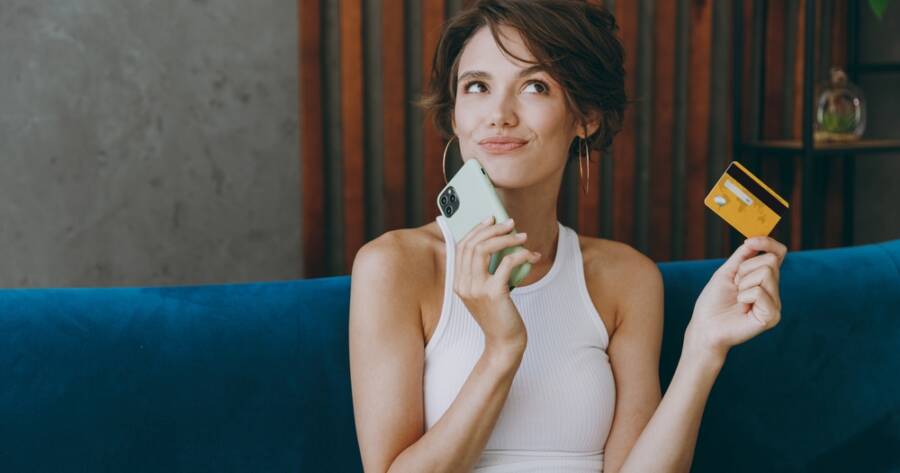In a world full of sales, notifications, and next-day deliveries, it’s easy to spend without thinking. Yet many people are discovering that owning less—and buying more intentionally—can bring a sense of calm that money itself can’t buy. Minimalism isn’t just about clean closets or empty countertops; it’s a mindset that encourages thoughtful spending and deeper appreciation for what truly matters. By simplifying what you own, you can also simplify how you feel.
1. The Mental Weight of Too Much Stuff
Clutter doesn’t just take up physical space—it fills your mental space too. When every surface is covered, every closet packed, and every drawer overflowing, it can lead to feelings of stress and distraction. Research in psychology consistently shows that visual clutter can increase anxiety and reduce focus.
Minimalism helps by encouraging you to remove the excess. It’s not about living with nothing, but rather living with only what supports your needs and values. The act of decluttering often brings a surprising emotional release. As you clear out old possessions, you also let go of guilt, obligation, and attachment to things that no longer serve us. The result? More peace, more clarity, and more energy for what truly matters.
2. Mindful Spending: The Power of Pause
Minimalism and mindful spending go hand in hand. Mindful spending means slowing down before making a purchase and asking, Do I really need this? Will this add lasting value to my life? That simple pause can prevent impulse buys and reduce financial stress.
When you become intentional about spending, you start to align your purchases with your priorities. Instead of shopping to fill emotional gaps—like boredom or frustration—you begin to make choices that reflect your long-term goals. The reward isn’t just a healthier bank account. It’s also the mental freedom that comes from feeling in control of your choices rather than controlled by them.
You can start small: wait 24 hours before buying something non-essential, or track each purchase for a week and review whether it was truly necessary. These small habits build awareness and help transform your relationship with money.
3. Fewer Distractions, More Focus
Minimalism simplifies more than just your home—it clears space in your mind. Every item you own, from furniture to gadgets, requires attention. It needs to be maintained, cleaned, stored, or charged. The more you accumulate, the more your attention gets divided.
When you reduce these distractions, you naturally regain focus. Many people find that owning less allows them to concentrate better on work, relationships, and personal growth. A tidy, simplified environment can reduce decision fatigue and mental clutter. With fewer distractions, you become more present in daily life—whether you’re reading a book, cooking, or spending time with loved ones.
4. Emotional Benefits of Letting Go
Letting go of possessions can be an emotional process, especially when items carry memories or sentimental value. But learning to part with things can teach powerful lessons about attachment and acceptance. It reminds us that joy and meaning come from experiences, not objects.
Each time you choose to release something you don’t need, you reinforce a sense of self-trust: the belief that you already have enough. This mindset can reduce the constant feeling of scarcity or “not having enough” that drives consumer culture. Over time, the emotional weight lifts. What remains is gratitude—for what you have, and for the space you’ve created to breathe.
5. Minimalism as Self-Care
While some see minimalism as restrictive, it’s actually an act of self-care. By curating what you allow into your home, schedule, and mind, you protect your energy. Owning fewer things often means spending less time cleaning, organizing, or searching for lost items—and more time on activities that bring genuine joy.
Minimalism also encourages healthier boundaries. It reminds us that saying “no” to unnecessary things—whether physical clutter or social obligations—creates room to say “yes” to what nourishes us. For many, this practice leads to better sleep, lower stress, and a greater sense of purpose.
Finding Peace in Simplicity
At its heart, minimalism isn’t about living with the least; it’s about living with intention. By practicing mindful spending and simplifying your surroundings, you reduce stress, sharpen focus, and make room for peace. Each decision to buy less or let go of excess becomes a small act of clarity—one that strengthens both mental wellness and financial stability.
The next time you feel tempted to buy something new, take a moment to pause and ask yourself: Is this adding value—or just adding clutter? In that quiet moment, you might find that contentment was already within reach.

